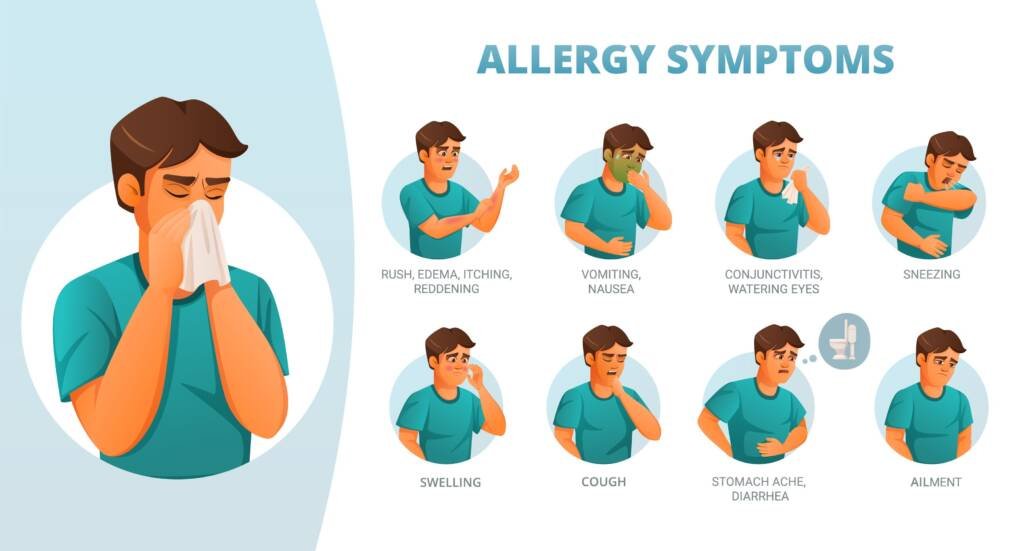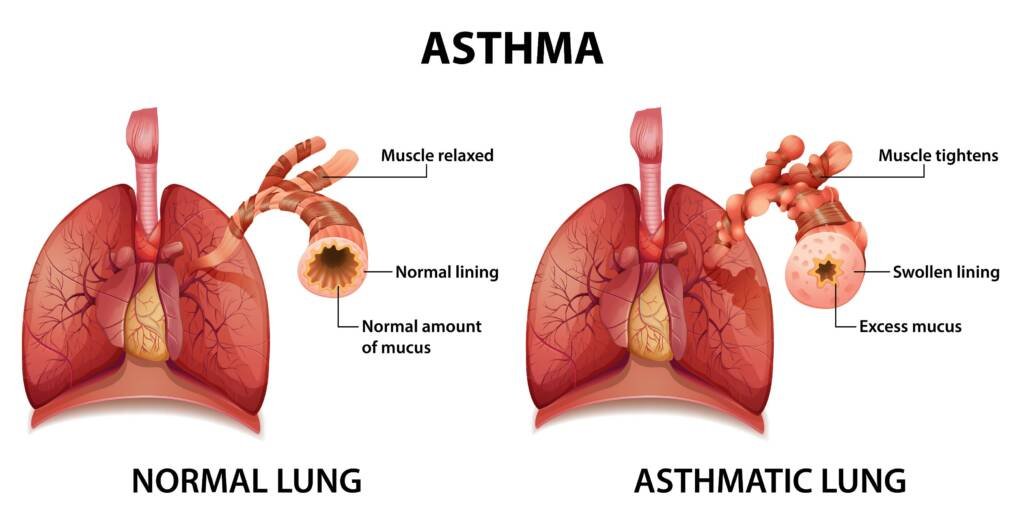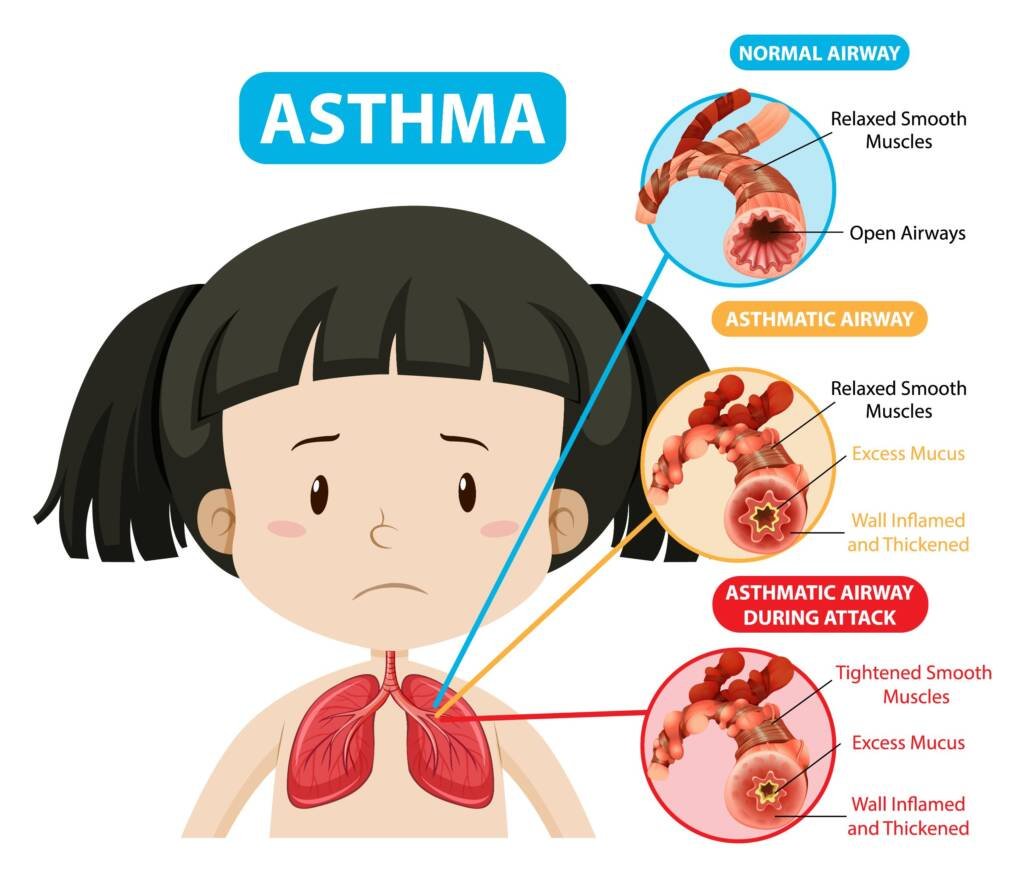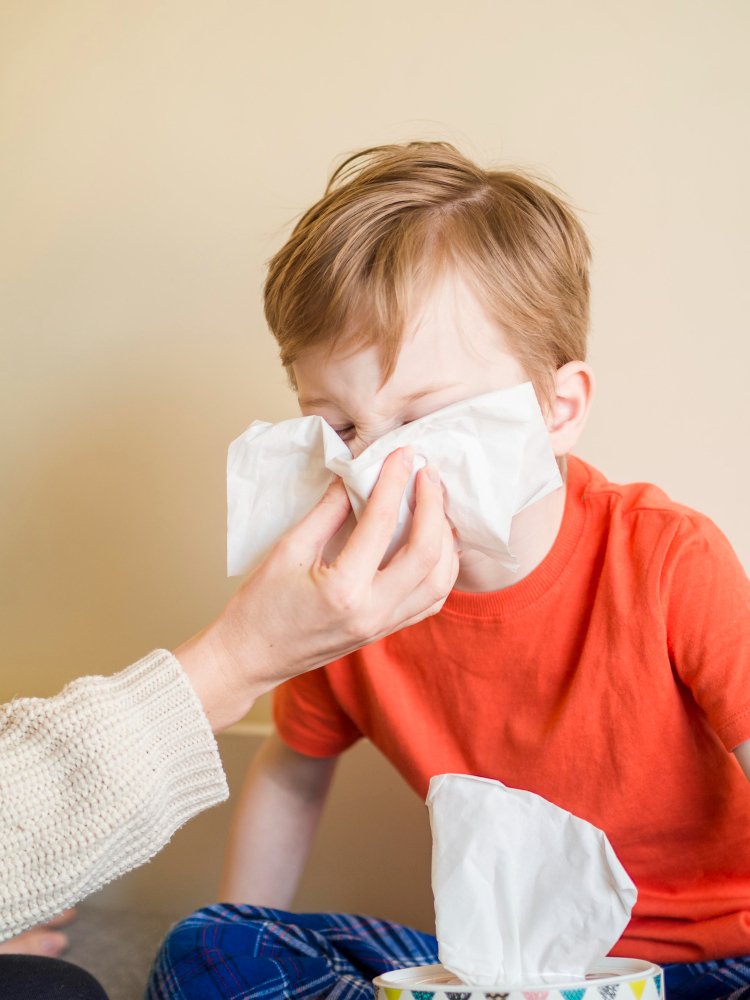Frequent sneezing, runny nose, and nasal congestion are common symptoms of a condition known as allergic rhinitis. Children with this condition may experience bouts of sneezing early in the morning and complain of an itchy nose that leads them to rub it continuously. Allergic reactions are triggered by certain substances, such as pollen during pollen seasons like summer and spring. Children who are sensitive to pollen typically experience symptoms when they are outdoors. Others may have symptoms all year round due to triggers present indoors, such as dust mites, animal furs, and fungi.
Symptoms of allergic rhinitis can range from mild to severe and may affect a child’s sleep and daily activities. The frequency of symptoms may vary depending on the frequency of exposure to the substances that trigger them. It’s important to seek medical attention if your child’s symptoms are affecting their quality of life or if they have trouble breathing, as these may be signs of a more severe allergic reaction.

Doctor, can allergic rhinitis affect other family members living together? Also, what is the reason behind the occurrence of allergies?
Allergies are often hereditary, meaning that they can run in families and affect more than one person living together. Allergic rhinitis is a condition caused by inhaling tiny particles that trigger abnormal immune system reactions. Common airborne substances such as pollen, fungal spores, animal furs, and dust mites can act as trigger substances for susceptible individuals. When an individual with allergic tendency comes into contact with a trigger substance, their body’s defense system releases certain chemicals, including histamine, which can cause symptoms such as runny nose, nasal itching, sneezing, and nasal congestion.
The nasal passage and the inner lining of the nose usually act as a filter to prevent these allergens from entering the lungs. However, poorly controlled allergic rhinitis can lead to complications such as snoring, poor sleep, daytime fatigue, and reduced attention span. Allergic rhinitis may also be associated with other conditions such as skin allergy, nasal polyps, and allergic conjunctivitis (redness and watering of eyes).
It’s important to treat allergic rhinitis to prevent these complications and to avoid the development or worsening of asthma, as the nose and lungs are connected. Allergic rhinitis is not contagious and cannot be caught by living in the same household.
What is Asthma?
Asthma is a prevalent chronic illness that can affect people of all ages, including young children. It is a condition in which the airways become inflamed, leading to periodic narrowing or obstruction. As a result, the individual experiences a range of symptoms such as coughing, wheezing, shortness of breath, and chest tightness. Asthma is characterized by its episodic nature and the ability to reverse airway obstruction. Despite the recurring symptoms, the inflammation of the airways remains persistent.
How will I manage if my child is having asthma attack at home?
If your child suddenly develops severe symptoms such as difficulty breathing, fast breathing, wheezing, coughing, or complaining of a tight chest, it is important to act quickly. You should start by administering four puffs of a salbutamol inhaler via a spacer and mask, and repeat every 20 minutes until symptoms improve. If there is no improvement after an hour, you should seek emergency medical attention.
It is important to use inhalers as prescribed by a doctor. There are two types of inhalers: reliever inhalers that help open up the breathing tubes during an asthma attack, and preventer or controller inhalers that are taken regularly to reduce the sensitivity of the breathing tubes over time. Spacer devices should always be used to ensure the medicine reaches the breathing tubes, and your child should rinse their mouth after using a preventer inhaler. Nebulizers should not be used at home without medical supervision.
To know more about Asthma and allergy, consult Dr. Sushma, Best Pediatrician at Chandanagar.
What are the symptoms of Asthma?
Asthma is a chronic condition that commonly affects children, causing frequent episodes of wheezing, chest tightness, shortness of breath, and dry cough. These symptoms can be triggered by various factors such as viral infections, dust, smoke, and cold air. Diagnosis should be confirmed by a doctor, and it is important to note that asthma is a multifactorial condition that may have no identifiable risk factors or may be caused by long-term exposure to allergens. Some children with asthma may also experience other allergy symptoms such as runny nose and eczema.





